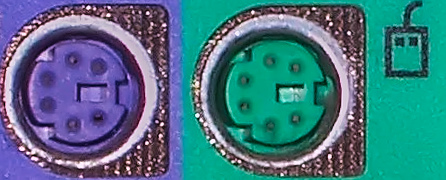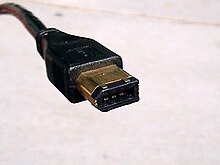Cards In This Set
| Front | Back |
|
ESD
|
Electrostatic Discharge. Passage of static electrical charge from one item to another. Avoid by keeping you and the parts of the PC at the same electrical potential. Most prevalent in dry, cool environments. Can use anti-static wrist strap and mats to help. CPU and RAM are very sensitive to ESD.
|
|
EMI
|
Electromagnetic Interference. Magnetic field interfering with electronics. Can cause permanent damage to some components and erase data on some storage devices. Keep magnets away from computer equipment, such as floppy disks, hard drives, flash drive, and CRT (tube) monitors.
|
|
RFI
|
Radio Frequency Interference. Most devices are shielded to prevent RFI. A few devices, particularly speakers, are most susceptible. These devices can be tuned to avoid the same frequencies.
|
|
Connectors, Plugs, Ports, Jacks
|
Connector- port, plug, jack
Port- plug does into it Jack- alternative to port, plug goes into it |
|
Mini-Din Connectors
|
 Also called PS/2 and DIN-6. Most commonly used for keyboards and mice. Modern systems have replaced mini-DIN connections with USB. |
|
USB Connectors
|
Used with mice, keyboards, scanners, cameras, and printers. Come in three sizes: A (on computer), B (are for other end of the USB connector), and mini-B (used for small devices such as cameras). Are hot-swappable and get electrical power through the USB connection.
|
|
FireWire Connectors
|
 Also known as IEEE 1394. 6-wire or 9-wire connector. Moves data at incredibly fast speeds. Are hot-swappable. |
|
DB Connectors
|
 Known as D-sub or D-subminiature or D-shell connectors. Used for almost every peripheral with exception of keyboards. Slight D-shape. Can have from 9 to 37 pins, although rarely more than 25. Now, mostly used for video. |
|
RJ Connectors
|
 RJ 11 used to connect phone jack for modems to connect PC to a network. RJ-45 jack is used for network connections. Note that modern PCs have built in network connections; however this used to only come on expansion cards called network interface cards (NIC)- term still used today. |
|
Audio connectors and Sound
|
Speakers and monitors connect to audio jacks. Most common kind is 1/8-inch connector, also called mini-audio connector. Most computers have two miniature audio jacks: one for speakers and one for microphone. Color scheme is complex, but green is main one for speakers. The new, Sony/Philips Digital Interface Format (S/PDIF) replaces all mini-audio connections.
|
|
Connector used for keyboards
|
Mini-DIN or USB. Port colored purple.
|
|
Connector used for monitors
|
Connects to video connector, with old 15-pin female DB Video Graphics Array (VGA) or unique digital visual interface (DVI). VGA are blue; DVI are white. New connector is High-Definition Multimedia Interface (HDMI).
|
|
Connector used for mouse
|
Uses either USB or a light-green mini-DIN connector.
|
|
Connector used for printer
|
Old: parallel port (25-pin female DB) that's usually colored fuchsia; most printers now come with USB, Ethernet, and Wi-Fi 802.11 b/g/n connectivity options.
|
|
ESATA
|
 Some external hard drives and optical dives can connect via eSATA. |



